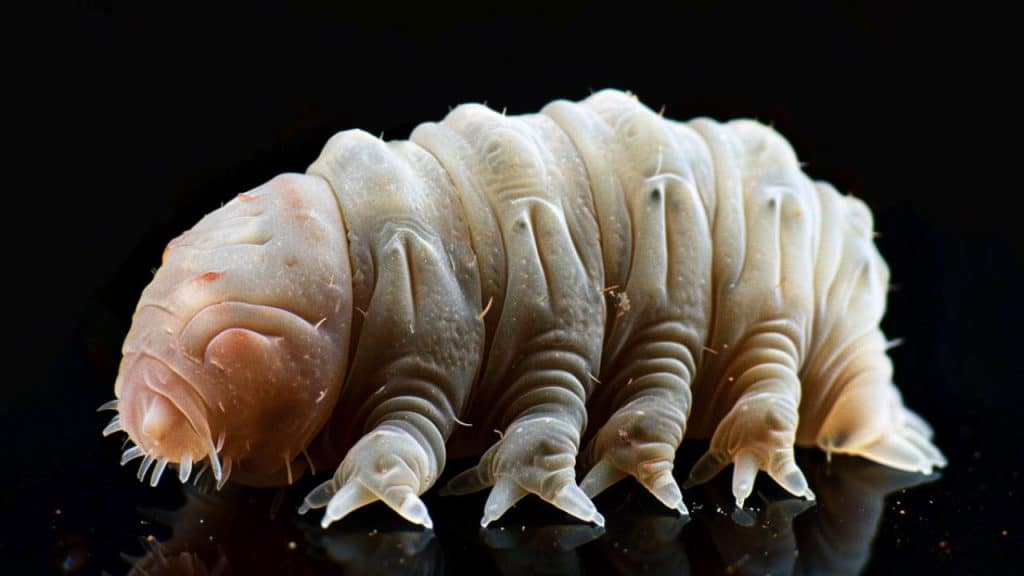Tardigrades are strange yet fascinating creatures. We understand so little about how they work, but what we do know is that their survival skills are beyond most animals’ dreams. They’re a clear subject of interest to scientists trying to extend the human lifespan (https://longevity.technology/news/research-shows-tardigrade-proteins-can-slow-metabolism-in-human-cells/).
We’ve starved tardigrades of food, water and air; we’ve exposed them to the most extreme temperatures, scorching and freezing; we’ve subjected them to extraordinary pressure; and we’ve blasted them with toxic radiation. They’ve even stayed alive while floating in the void of space. It seems water bears, those microscopic eight-legged creatures, are in a category all of their own.
For researchers at the University of Wyoming, their particular interest was dehydration. Deprive a human of water, and they’ll start experiencing unpleasant symptoms pretty quickly and will be dead within days. Most animals are the same way. Water is generally considered one of the most essential ingredients of life.
So how can a tardigrade be completely dried out, without a single drop of moisture remaining, and then the moment you rehydrate it, it’s back to normal and completely fine?
The answer is anhydrobiosis. This is a form of stasis, allowing the tardigrade to put its regular metabolism on hold. It’s possible due to a special category of what are known as intrinsically disordered proteins (IDPs). Specifically, the researchers were looking at Cytoplasmic Abundant Heat Soluble proteins (CAHS).
These proteins appear to have the ability to create protective gels, but until now, we didn’t know how that worked. The scientists were able to identify specific mechanisms, such as how gelation could fix molecules in place so they weren’t damaged by dehydration. They also observed CAHS creating fibrillar networks to reduce metabolic activity and stop cell volume from altering. This took place during what’s known as osmotic shock (sudden changes in concentrates and water movement around the cells), but it could easily be reversed again afterwards.
Even more interestingly, when the researchers tried inserting CAHS into human cells, they saw similar effects. A gel was created that caused metabolism to slow, cells to enter biostasis, and stressors to become less damaging. Then, when it was over, the gel dissolved and normal metabolism was restored.
We may still have a lot to learn about tardigrades, but this particular piece of research already has huge implications for how CAHS proteins may extend life and health.




